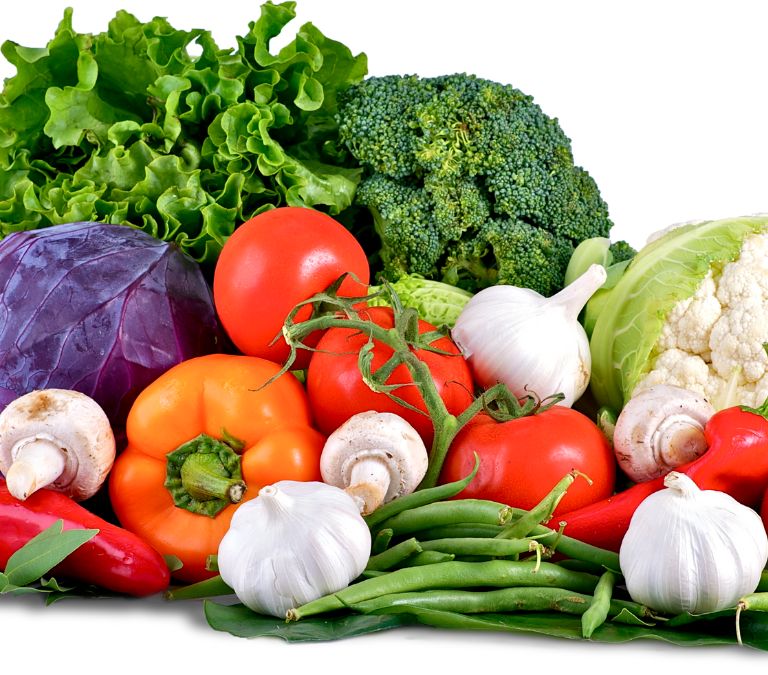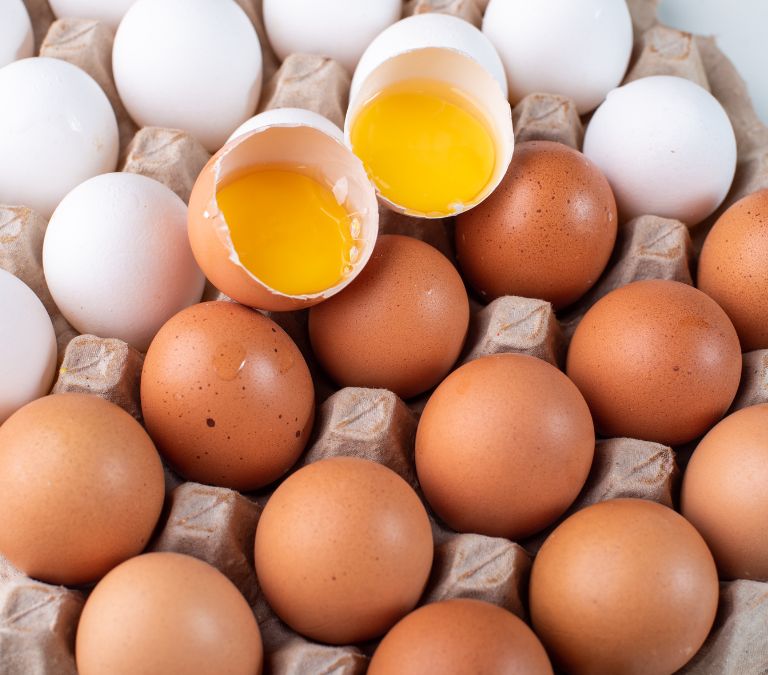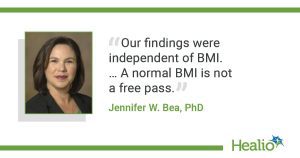We all know menopause symptoms like hot flashes, night sweats, anxiety, and vaginal dryness are a pain in the neck. But for some women, fuzzy thinking or memory loss is the most frustrating and annoying menopause symptom.
If you’re in your late 40s or early 50s, there’s a high chance you’re going through menopause. Studies have shown that the average age for American women to enter menopause is 51.
Many discomforting symptoms and health complications characterize this transition state. Also, about 60% of women in menopause or perimenopause experience mild memory loss and brain fog.
Menopausal brain fog is best described as the dumb feeling that makes it hard to digest and remember simple information or concentrate on daily tasks. For example, you might forget why you entered the kitchen or struggle to remember your date of birth.
Many women find this alarming and fear it’s a sign of dementia or Alzheimer’s disease. Relax, these symptoms are likely not an early sign of Alzheimer’s or Dementia; it might be a sign that your reproductive years are ending.
Today’s piece will discuss all you need to know about menopausal memory loss and how to combat it.
Menopause and Memory Loss: What’s the Connection?
The major change that the body undergoes during menopause is a reduction in hormone levels. As you approach menopause, the functioning of your ovaries declines, and they start to produce a small number of eggs and eventually stop. In response, the body produces less estrogen because the hormone is no longer needed in high quantities.
This process is gradual. During perimenopause, there are fluctuations in the levels of estrogen. This is the main reason why women experience discomforting symptoms during menopause.
For example, excess night sweats and hot flashes are experienced when the body sends a signal to the brain and misinterprets it as overheating. Night sweats make it difficult for you to sleep, leading to mood swings, fatigue, and depression, especially for women with an early history of depression. Changes in progesterone and estrogen levels can also lead to insomnia and sleep disturbances.
Estrogen is a hormone that plays an essential role in our memory and works at all stages of life. So it shouldn’t be surprising if there’s mild brain loss at menopause.
While hormone levels are not directly linked to cognitive functions, changes in hormone levels may impact the memory lapses women suffer during perimenopause.
Also, research has shown that estrogen has a strong effect on memory, and its fluctuations during perimenopause can lead to memory loss and that most women experience an improvement in their memory after menopause.
An extensive study in 2004 supports the claims that changes in hormone levels during menopause often lead to loss of verbal memory. It also suggests that these effects are different from those of natural aging. This research served as the basis for most current studies on this issue.
Also, other research has shown that women experience a decline in the ability to learn during perimenopause. After menopause, their learning abilities become active as it was before.
Research conducted by Harvard University has shown that estradiol is a form of estrogen that plays a role in the brain. And it relates to changes in memory performance and organization of the brain circuitry related to effective memory functioning.
Several other types of research have shown other ways menopause can be responsible for memory loss – menopause impacts the generation and activities of brain cells. These processes have effects on brain parts that are in charge of memory. Menopause has also been linked to lowering glucose levels (the main fuel used by the brain cells). When this happens, the brain seeks fuel from other metabolic sources to provide its cells with the necessary energy to maintain proper functioning.
Some menopause symptoms might also play a role. A study has shown that hot flashes can lead to memory setbacks. Also, excessive night sweats make it difficult to have a good night’s rest, which affects focus and attention the next day.
As discussed above, memory lapses due to menopause aren’t last forever. Like other menopause symptoms, it will go as you pass this transition.
However, consider talking to your healthcare provider if you’re experiencing serious memory issues.
Fruits and Vegetables That Aid With Memory

One of the best ways to improve your memory during menopause is by taking the right foods. Is it surprising that certain fruits and veggies can help enhance your memory and concentration? This section will discuss the top fruits that help with memory during menopause:
| Fruit | How it aids with memory |
| Blueberries | Blueberries are packed with numerous health benefits, some of which are specifically for the brain. Deeply colored berries are rich in flavonoid antioxidants, making them one of the best fruits for your brain.
They are also rich in anthocyanins – a group of compounds with strong antioxidant and anti-inflammatory effects. Antioxidants reduce oxidative stress and inflammation – two conditions that can cause brain aging and memory lapse. Research has shown that the antioxidants found in blueberries can help improve communication between brain cells. According to a review of some studies, blueberries can help improve cognitive processes and memory, especially in young children and adults. Other berries rich in antioxidants that can improve brain health and memory include strawberries, black currants, blackberries, and mulberries. Add berries to your smoothies, sprinkle them on your cereal or enjoy them as snacks. |
| Oranges | If you’ve ever read about oranges, you know they are rich in vitamin C. You can reach your daily vitamin C RDA by simply taking a medium-sized orange.
Well, that’s good news for all menopausal women looking for a simple way to boost their memory because vitamin C plays a key role in preventing mental lapse. Research has linked higher levels of Vitamin C with improved focus, speed, memory, and decision-making. Also, vitamin C is rich in antioxidants that fight off free radicals that can damage brain cells. Furthermore, vitamin C is linked with increased brain health in older adults and may prevent conditions like Alzheimer’s disease and anxiety. What more? Vitamin C has been linked with regulating Dopamine levels, a hormone that impacts your attention, mood, and memory. Make orange juice or enjoy them as snacks. |
| Blackberries | Many berries benefit health from the high amount of carotenoids, polyphenols, and vitamin C.
But these berries aren’t equal – some offer more benefits than others, and blackberries are one of them. They’re rich in Vitamin K and fiber. Many pieces of research have shown the benefits of blackberries to the brain. One study that focused on feeding aged rats with blackberries for 8 consecutive weeks showed that rats that ate berries had improved motor performance and memory performance than other rats. Enjoy a handful of blackberries as a snack, or bake it into your dessert. |
| Nuts and Seeds | Research has shown that eating nuts and seeds can improve brain health because they are rich in flavonoids and antioxidants. Also, eating more nuts impacts heart health markers leading to a healthy heart and brain.
Furthermore, 2014 research has shown that consumption of nuts may be linked to improved brain functioning at an older age. Seeds and Nuts are good sources of Vitamin E, a strong antioxidant that protects against oxidative stress. As you age, there will be more free radicals to oxidative stress; having loads of vitamin E might help curb this. Also, it has been proved that women who eat nuts are likely to have sharper and enhanced memory than those who don’t take nuts. Studies have given you every reason to include nuts in your diet. There are hundreds of nuts and seeds. However, hazelnuts, sunflower seeds, and almonds have the highest vitamin E. |
| Cherries | Cherries don’t only make your ice cream or cake taste better. But intake of a few cherries daily might improve your brain functioning because they’re rich sources of cyanidin 3-glucoside (C3G), a powerful antioxidant.
This antioxidant has been linked with preventing premature death of brain neurons. Also, it has been shown to reduce the effects of neurotoxicity in the brain of children. |
| Walnuts | All nuts are a good addition to your diet, but walnuts offer more benefits to your brain health. Walnuts contain twice more antioxidants than other nuts. They’re rich in alpha-linolenic acid (ALA) – a plant-based healthy fatty acid that reduces oxidative stress and inflammation. Excess inflammation and oxidative stress can lead to Alzheimer’s disease. ALA also helps the blood pressure and keeps the vessels clean to support the proper circulation of blood which is good for both the heart and the brain.
Research has linked adequate intake of walnuts to higher cognitive test scores. Grab a handful of walnuts to satisfy your food cravings, or add them to your salad. |
| Tomatoes | Research has shown that tomatoes are rich in Lycopene, a strong antioxidant that has powerful effects on free radicals. They’re also a good source of beta carotene, another antioxidant that improves brain and cognitive function.
What more? Tomatoes contain Vitamin A and Vitamin C making them good for combating heart disease. Cook your tomatoes and enjoy them with Olive Oil, or dice it and garnish your salad. |
| Guava | Guava is rich in A, B, and C Vitamins, polyphenols, and Carotenoids.
Polyphenols have strong neuroprotective properties that help combat neurotoxin damage. Carotenoids, on the other hand, have strong antioxidant and anti-inflammatory effects. Thus, they protect the nervous system from oxidative stress, inflammation, and DNA damage. Make a cup of guava juice, slice it, and eat it as a snack. |
| Leafy Greens | Leafy vegetables are a rich source of nutrients like Vitamin K, E, and Carotenoids. Vitamin acts as an antioxidant that prevents oxidative stress and cognition lapse in older adults.
Beta carotene and Vitamin K are also good for the brain as they help prevent memory lapse and improve cognition. Not only that, leafy greens like spinach and kale offer many health benefits to menopausal women, including helping them maintain a healthy weight. Consider adding a handful of green veggies to your everyday diet. There are a hundred and one ways to do that! |
| Kiwis | Research has linked Kiwi with regulation and improvement of mood. This helps a lot, especially for menopausal women that frequently experience mood swings. Having a regulated mood can enhance your focus and decision-making abilities.
Some studies linked the prevention of brain disorders like Alzheimer’s disease. The fruit also helps fight infections and improve your overall health. You can take Kiwis as a snack or add them to your smoothies. |
| Avocados | Many desist from taking avocados because they are said to be fattening. Well, these fruits are packed with beneficial fats that improve brain health. What more? They taste good and aren’t too sweet, making them a good option for menopausal women.
Avocados have been linked with increased blood supply, oxygenation of the blood, maintaining healthy blood pressure, and reducing the risk of stroke. |
| Bananas | Bananas are one of the best fruits for memory improvement. No wonder many referred to them as brain food. These fruits are a good source of magnesium and potassium, which helps the brain energy and sharpens brain focus making you more attentive and make decisions effectively.
Bananas are also rich in nutrients and vitamins that enhance cognitive function. They also contain tryptophan – an amino acid processed by the body to produce serotonin and melatonin. Serotonin regulates mood, appetite, sex drive,e, and memory capacity. On the other hand, melatonin plays a role in regulating your sleep-wake cycle. Top your whole grain granola with bananas, or take it as a midday snack. |
| Blackcurrants | Though they aren’t very popular in the United States, Blackcurrants have been linked with the ability to boost brain health.
Research has shown that this fruit works similarly to drugs used to treat Parkinson’s disorder. Blackcurrants also help reduce chronic mental fatigue – one of the most discomforting symptoms of menopause. It also energizes the brain, makes you think clearer, and remembers things faster. You can take blackcurrant as a snack, add it to your smoothies or make blackcurrant juice. |
| Pumpkin | Pumpkin seeds are rich in powerful antioxidants that protect the brain and the whole body from the damage caused by free radicals.
Also, they’re a rich source of iron, zinc, and magnesium. Each of these nutrients has a great impact on the brain. Studies have linked adequate intake of magnesium with memory enhancement. At the same time, magnesium deficiency has been linked to neurological disorders like depression and migraine. Zinc, on the other hand, plays a role in nerve signaling. Like magnesium, its deficiency has been linked to numerological disorders like Parkinson’s disease and migraine. Also, copper impacts nerve signals, and when your copper levels are low, you become more exposed to neurodegenerative conditions like Alzheimer’s. Adding pumpkin seeds to your diet enables you to enjoy the benefits of these micronutrients. |
| Peanuts | These legumes are packed with many nutrients and minerals. Peanuts are rich in unsaturated fats and healthy proteins that help keep your energy levels balanced all day long.
It is also rich in vitamin E and other minerals that keep the brain active and healthy. Peanuts are also rich in Resveratrol, an antioxidant proven to help reduce inflammation and the risk of cancer and some neurological disorders. |
| Brocolli | Broccoli isn’t only a low-calorie dietary fiber; it also improves brain health. They are a rich source of vitamin K – a nutrient linked with improved cognitive function and brain health. One serving of broccoli provides you with the daily RDA intake of broccoli.
The study has also shown that broccoli is rich in compounds known as glucosinolates, a compound that slows the breakdown of acetylcholine (a neurotransmitter that makes the memory shaper) Brocolli also contains anti-inflammatory and antioxidant properties, which might protect the brain from damage. |
| Plums | Plums share a lot of health benefits with berries; what differentiates between the two plums is are rich in anthocyanins. A class of flavonoids that give plums their color. Also, anthocyanins have several health benefits.
They have been linked with neuroprotective properties, such as protecting the brain from inflammation and toxins. Anthocyanins can therefore help boost your memory and learning capabilities. |
Food that Aid with Memory

Just like fruits and veggies, other foods aid with memory during menopause. Down below is a table of some of these foods:
| Food | How does it help memory |
| Eggs | Eggs are a rich source of many nutrients that improve brain health, including folate, B vitamins, and choline.
Vitamin B6 and B12 help reduce the levels of homocysteine – high levels compound the risk of developing Alzheimer’s disease and cognitive impairment. Eggs yolks are concentrated choline, a nutrient converted to acetylcholine – a neurotransmitter linked with memory enhancement and mood regulation. Some studies have also linked high choline levels to increased mental and memory functioning. Studies have shown that folate deficiency is very common in older adults with dementia. Also, vitamin B12 plays a role in synthesizing the brain. It’s worth noting that very little research has linked the direct intake of eggs to brain health. However, there are a lot of studies that show most of the nutrients present in the egg have brain-boosting properties. Thus, by adding other foods rich in B vitamins like seeds, chicken, and dairy, you’ll be able to enjoy these benefits. |
| Fatty Fish | What’s a list of brain food without fatty fish? Oily fishes are a good source of omega-3 fats such as DHA and EPA. These essential fats aren’t produced naturally by the body and can only be gotten from diets. These fats significantly impact the well-being of our brain, heart, and overall health.
While these healthy fats are also found in flaxseed, walnuts, and pumpkin seeds, Oily fish is considered the best way to get them because they’re present in their most active and ready-made form. About 60 percent of the brain is made from fat, and more than half of these fats are omega-3. The brain uses these healthy fats to make brain cells, impacting memory and learning ability. There are also other health benefits that omega-3 fats offer to our brains. Research has shown that omega-3 fats reduce the risk of mental decline caused by aging. Their deficiency has been linked to depression and learning impairment. A study has also shown that regular fish consumption is linked to more grey matter in the brain. Nerve cells of the Grey matter are concerned with memory and decision making. Some examples of fatty fish are tuna, salmon, trout, herring, Kippers, and sardines. |
| Lamb | Well, if you’re a lover of lamb meat, then here’s more reason to continue eating it. Research has linked regular eating of lamb with increased long-term cognition. The study also showed that consuming lamb and other diets improved fluid intelligence scores.
Add lamb meat to your favorite soup, or grill it and enjoy! |
| Whole grains | Switching from refined grains to whole grains could help improve your brain health. Apart from other health benefits that whole grains offer menopausal women, they can also help you reduce the lack of concentration during menopause.
The brain needs the energy to carry out its functions properly. You’ll only be able to focus and concentrate when there’s a continuous supply of energy from the blood to the brain. This can easily be achieved by adding whole grains to your diet. These foods release energy slowly into the blood, keeping you focused and alerted all-day long. Deficiency in whole grains has been linked with brain fog. So try to load more brown rice, whole grain pasta, oatmeal, brown bread, and buckwheat. |
| Coffee | The caffeine in your morning cup of Joe might offer much more than a good taste and boost focus. A study has shown that people who consume higher amounts of caffeine are likely to score higher on mental function tests. Caffeine is also linked to solidifying new memories.
Research carried out by Johns Hopkins University asked some individuals to study certain images and take either a 200mg of caffeine tablet or a placebo. The next day, most caffeine tablet users remembered the images correctly. However, certain studies discourage menopausal women from consuming excess coffee. So, be wary of the amount of coffee you drink daily. |
| Dark Chocolate | Yes! Those dark chocolate bars don’t only quench your sugar cravings; they’re also packed with health benefits.
Studies have shown that cocoa powder and dark chocolate are rich in compounds that improve brain health, including flavonoids, antioxidants, and caffeine. More than 70 percent of dark chocolate is cocoa, far more than the 10 – 50 percent of cocoa in milk chocolate. Flavonoids found in chocolate have an impact on the areas of the brain that are concerned with memory and learning. Several studies say these plant-based compounds may improve memory and reduce the risk of age-related memory lapse. Research carried out on more than 900 participants have shown that individuals who eat chocolate regularly score higher in mental tasks than those who don’t eat chocolate. Research has shown that individuals who eat chocolates have more positive feelings than those who consume crackers. This means chocolate is also a good way to elevate your mood during menopause. |
| Green Tea | Like coffee, green tea is also rich in caffeine, increasing focus, memory, and alertness.
There are also other nutrients in green tea that make it a brain-friendly beverage. Few studies have shown that green tea might help enhance memory. It is rich in L-theanine, a compound that can cross the blood-brain barrier and improve the activities of GABA, making you feel more relaxed and happy. A review also found that the compound makes you feel relaxed by hindering the stimulating effects of caffeine. Green tea is also rich in antioxidants and polyphenols that can help reduce the risk of mental decline and some neurological disorders. |
| Soy Products | Soy products are one of the best food to include in your menopause diet. Soy contains a high amount of polyphenols which are strong antioxidants.
Studies have shown that polyphenols help reduce the risk of dementia and enhance cognitive abilities as you age. Forms of polyphenols in soy products include genistein and daidzein, which have been linked to increased overall health. Soy products also have a lot of nutritional benefits to menopausal women. They contain phytoestrogens which mimic the effects of natural estrogen in women, thus relieving menopausal symptoms and improving bone health. They have also been linked to reducing the risk of breast cancer. Consider adding tofu, soy milk, soy flour, and other soy products to your diet. |
Exercises that Aids With Memory

It’s not all about food, food, and food. Certain exercises have been proven to improve your memory.
Studies have proved that there are some ways you can sharpen your memory and keep your brain healthy irrespective of your age.
This section will discuss some exercises that can help sharpen your memory.
| Exercise | How it Helps Brain |
| Jigsaw | Whether a 500-piece image of the Statue of Liberty or a 100-piece image of Tom and Jerry, playing jigsaw is one of the best ways to exercise your brain.
A study has shown that working on a jigsaw puzzle involves many cognitive abilities and reduces the risk of visuospatial cognitive impairment. When putting together a jigsaw, you try to look at hundreds of pictures and choose the one that will fit the right place. This is a good way to challenge and sharpen your brain. |
| 4 Details Observation Exercise | Notice the people you’re meeting in public and memorize four details about them. For example, a lady is wearing a blue and black dress, has brown hair and wears a grey hat.
First, you’ll observe these details, then try to recall them later. Some call this exercise passive memory training because it doesn’t involve the use of any technique. Instead, the brain is made to do its natural function of remembering details. Start with observing one person daily. |
| Play Cards | Well, if it has been ages since you last played cards, then it’s time to hone your card skills again! Studies have shown that playing cards increase the volume of the brain and help enhance memory and thinking abilities.
Also, memory card games test your ability to remember things and how sharpened your short-term memory is. Cards are a simple way to exercise the brain and activate parts of the brain that are in charge of recall and recognition. Some card games to try are solitaire, hearts, poker, bridge, e.t.c |
| Recall What People Say | Most of us aren’t good listeners, and that isn’t so good. Well, don’t be a puppet that keeps nodding when someone’s talking when your mind isn’t there.
Train your brain to be attentive to what others say and try to recall all they have said. The Repeat and Recall exercise involves repeating what the other person tells you silently in your mind. This improves your cognitive function and keeps you focused. |
| Learn New Dance Moves | Research has shown that learning dance moves can enhance your brain’s memory and speed. Dance your heart out, and your brain will be delighted.
Here are some dance activities to try out:
|
| Learn a new sport or new skill | Start learning that sport you’ve always wanted to play. We recommend sports that stimulate the mind and body, like yoga or tennis. Exercises keep you fit both physically and mentally. As you learn a new sport, your muscle memory will stimulate your mental memory.
A 2014 study has shown that learning new skills can enhance memory function among the elderly. It doesn’t have to be a sport! You can learn how to ride a bike, repair vehicles, or ride a horse. |
| Try a new cuisine | Join a cooking class or watch cooking videos to learn new cuisines. It might surprise you to know that cooking involves different regions of the brain and senses. |
How Husbands Can Help Their Women During Menopause and Memory Loss

Menopause is a life-changing stage, and most women don’t know how to react when the transition starts. As such, time becomes hard for women and their partners.
While you may not be able to prevent menopause, symptoms can strengthen your partner during this stage. Here are some tips:
Be Ready For Unexpected Mood Swings:
Unless you’re lucky your partner doesn’t experience discomforting menopause symptoms, dramatic mood swings are likely to chip in. This is a result of fluctuations in the levels of estrogen and progesterone.
Women who experience hot flashes and night sweats find it difficult to have a good night’s rest; as such, they wake up cranky in the morning.
Don’t be too harsh. Be flexible and understand when they are dealing with mood swings, even if the silliest issue causes it. If your partner is complaining that you came home late, try explaining to her in the best way; if she’s already heated at that time, give her time to calm down before explaining.
Be Patient During Intercourse
Sex becomes painful for most women during menopause. This is due to low levels of estrogen that cause drying of the vaginal walls. Drops in testosterone levels make most women experience low libido at this stage.
Take it easy with your partner. If she isn’t in the mood, don’t force her. Instead, you try some intimacy activities or consult a doctor. This won’t last forever – most women regain their sex drive after menopause.
Remind her About Things
Menopause can lead to memory loss in some cases. Your partner might forget to turn off the cooker or close the fridge. Try and be understanding. Reminds her of things and helps her include foods that aid in memory in her diet. If possible, join her in memory-enhancing exercises.
Make her Feel Like the Queen She is
Many women add weight and lose their sexy shape during menopause; this makes them feel less beautiful. Others find it hard to accept their reproductive years are over, while others find saggy breasts annoying.
Help your partner develop self-esteem; remind her she still looks beautiful and you love her more. Schedule a date at the beach or a dinner at her favorite restaurant.









